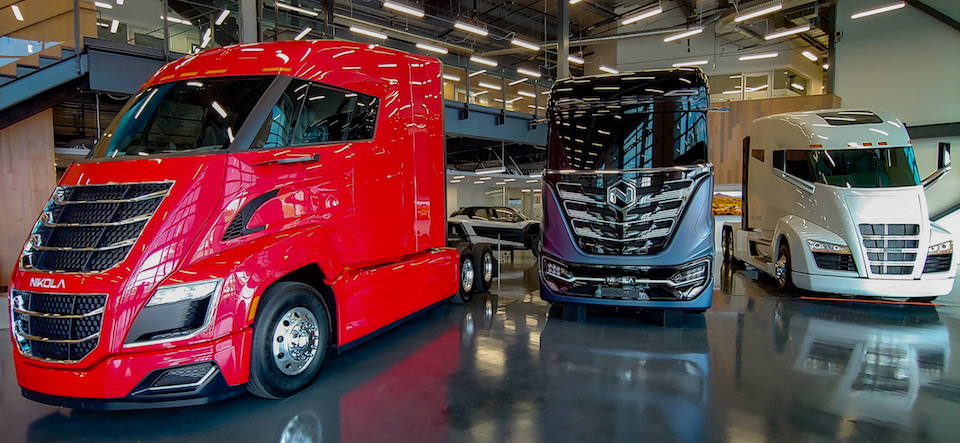It has some competition, but no stock on the auto sector is a better reflection of the equity market’s recent exuberance than Nikola Corp.
The aspiring battery-electric and hydrogen fuel-cell truck maker debuted on the Nasdaq last week following a reverse merger and its stock quickly took off, doubling on Monday and rising another 28% shortly after Tuesday’s open. Trading was halted twice within the first 40 minutes due to volatility, with the shares plunging as much as 22%. They were back up almost 8% as of noon in New York.

And yet Ford Motor Co., which is expected to report about $115 billion of revenue for this year, has trailed Nikola by market cap at several points in intraday trading. Many skeptics have questioned for years how much electric-car maker Tesla Inc. should be worth. But with Nikola, investors have taken appraisals of zero-emission vehicle manufacturers named after a celebrated Serbian-American inventor into the stratosphere.
“People are looking at this as the next Tesla, and they’re being stupid. Investors are being ridiculous,” Sam Abuelsamid, a transportation analyst at research firm Guidehouse Insights, said by phone. “While I think the tech absolutely has the potential to be disruptive, I don’t know that Nikola in and of themselves are, necessarily.”
Nikola’s goal is stable growth over time, Trevor Milton, the company’s executive chairman, said in an emailed statement. The 38-year-old said several factors may have spurred Monday’s gain, and cited examples including his tweeted announcement that the company will start taking reservations for a pickup model concept called the Badger.
Starting five years ago, when Milton founded Nikola, through the end of last year, the Phoenix-based company has lost about $188.5 million. It’s planning to start delivering the Tre battery-electric semi truck next year, followed by two fuel cell-electric models in 2023.
The Badger model that Milton said may have gotten the market excited on Monday might not actually make it into production. In Nikola’s public-offering filing, the company said it is focused on making Class 8 heavy-duty vehicles and doesn’t expect to build the Badger unless it finds an established manufacturer to partner with.
A spokesperson for the company said Nikola will announce a partner in the near future, without giving more specifics.
Last week, Milton ceded the chief executive officer job to Mark Russell, a former COO of metals manufacturer Worthington Industries Inc. who has been president of Nikola since February 2019. VectoIQ Acquisition Corp., the blank-check company Nikola merged with, is led by Steve Girsky, a former General Motors Co. vice chairman who helped lead the carmaker out of bankruptcy.
Little Cash
Nikola had about $86 million in cash at the end of last year. Prior to the stock listing, it had raised more than $500 million of private capital, though that includes a $150 million in-kind contribution from CNH Industrial NV, the truck maker linked to Italy’s billionaire Agnelli family. CNH also invested $100 million cash in Nikola last year.
The tie-up with CNH includes a 50-50 venture in Europe that aims to start producing battery-electric trucks in Germany in the first half of next year and an alliance in North America related to a factory Nikola will fully own.
Nikola is planning to build a 1-million-square-foot facility south of Phoenix and start making trucks in 2021. It’s expecting to reach full production of about 30,000 fuel cell-electric vehicles in 2027 and 15,000 battery-electric vehicles the following year.
Although Nikola touts reservations for 14,000 fuel cell-electric trucks that it says are worth about $10 billion of sales, those are far from done deals. The company told prospective investors in April that it was negotiating with strategic fleet partners to convert pre-orders into binding contracts with deposits.
While times are good for Milton—his fortune stood at $9 billion as of Monday’s close, according to the Bloomberg Billionaires Index—he still covets something Tesla’s CEO Elon Musk has: a blue check mark on Twitter.
Then again, Milton may want to be careful about seeking notoriety on Musk’s favorite social-media platform. The account @TESLACharts, which has accumulated roughly 26,400 followers by incessantly trolling Musk, has taken notice of Nikola’s rise.



